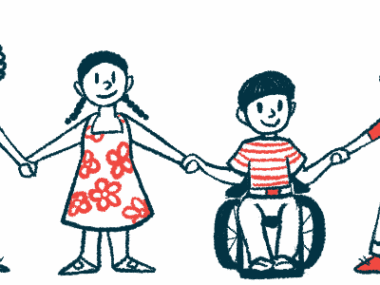Will I Pass EDS to My Children?
Written by |

Ehlers-Danlos syndrome (EDS) refers to a group of rare genetic disorders affecting the connective tissue that makes up the skin, joints, and blood vessels, and that gives structure to organs and tissues.
Among the many types of EDS, each carries different risks of transmission to the next generation. If you or your partner has EDS, you may wonder whether the disease will be inherited by your children.
How is EDS inherited?
Depending on the type, EDS can be inherited in a recessive or dominant pattern. In recessive inheritance, a person must have two copies of a disease-causing mutation — one from each parent — to develop the disease. In dominant inheritance, a single copy of a disease-causing mutation from one of the parents is sufficient to cause the disease.
Recessive types of EDS
The EDS types that are inherited in a recessive pattern include: classical-like, cardiac-valvular, dermatosparaxis, kyphoscoliotic, spondylodysplastic, musculocontractural, and brittle cornea syndrome.
If you have one of these EDS types, then you have two copies of the disease-causing mutation. The same applies to your partner.
If only one of you has one of the above types of EDS, then your children will be carriers of the disease. In other words, they will have a single copy of the disease-causing mutation, and will most likely not develop any disease symptoms.
However, if you have EDS and your partner is a carrier of the same mutation that you have, your children will have 50% chance of being a carrier and 50% chance of developing that type of EDS.
Dominant types of EDS
Classical, vascular, arthrochalasia, periodontal, and hypermobile EDS are inherited in a dominant pattern. If you have one of these types of EDS, you most likely have a single copy of a disease-causing mutation that you inherited from one of your parents who also had the disease.
In this case, your children will have a 50% chance of inheriting that copy and developing EDS. If your partner also has a single copy of the same mutation, then your children will have a 75% chance of developing EDS.
Myopathic EDS
Myopathic EDS can be inherited in a dominant or recessive pattern. Patients can discuss their family history with a genetic counselor to calculate their children’s risk of inheriting the disease.
Genetic counseling
If you have EDS or have a family history of the disease, you should consult a genetic counselor if you plan to have children. They can explain your genetic test results, and calculate the risk of your offspring inheriting the disease. Other members of your family may also need to be tested.
Last updated: April 7, 2020
***
Ehlers-Danlos News is strictly a news and information website about the disease. It does not provide medical advice, diagnosis, or treatment. This content is not intended to be a substitute for professional medical advice, diagnosis, or treatment. Always seek the advice of your physician or other qualified health providers with any questions you may have regarding a medical condition. Never disregard professional medical advice or delay in seeking it because of something you have read on this website.





